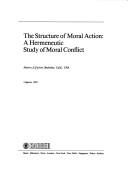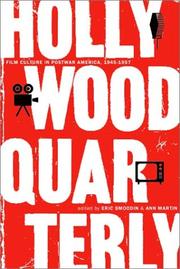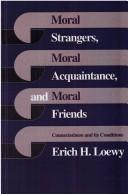| Listing 1 - 10 of 122 | << page >> |
Sort by
|
Book
ISBN: 9780889208667 0889208662 9780889200012 0889200017 Year: 1972 Publisher: Waterloo, Ont. Waterloo Lutheran University
Abstract | Keywords | Export | Availability | Bookmark
 Loading...
Loading...Choose an application
- Reference Manager
- EndNote
- RefWorks (Direct export to RefWorks)
This essay had its beginning in an investigation of changing attitudes to seventeenth-century Pre-Restoration poetry during the English Romantic period. In the course of that research, Jane Campbell discovered that a relatively little-known periodical, the Retrospective Review, which was published in London from 1820 to 1828, appeared to have played an interesting part in the rehabilitation of the poets of the earlier period. This book, then, is an attempt to outline the history of this review, to place it against its literary background, and to assess its role in the critical re-evaluation of the poets of the earlier seventeenth century—an age to which the Retrospective’s contributors and their contemporaries looked with fascination as well as with an affectionate feeling of kinship.
Criticism --- English poetry --- English prose literature --- English literature --- History --- History and criticism --- Theory, etc. --- History and criticism. --- The Retrospective review. --- Great Britain --- Intellectual life --- Retrospective review.
Book
ISBN: 3111325997 9783111325996 3598211317 Year: 2017 Publisher: Berlin/Boston Walter de Gruyter GmbH
Abstract | Keywords | Export | Availability | Bookmark
 Loading...
Loading...Choose an application
- Reference Manager
- EndNote
- RefWorks (Direct export to RefWorks)
Retrospective conversion (Cataloging) --- Cataloging of rare books --- Rare books --- Conversion of bibliographic data to machine-readable form --- Recataloging of bibliographic data to machine-readable form --- Retrospective catalog record conversion --- Cataloging --- Machine-readable bibliographic data
Book
ISBN: 3161468805 Year: 1998 Publisher: Tübingen Mohr Siebeck
Abstract | Keywords | Export | Availability | Bookmark
 Loading...
Loading...Choose an application
- Reference Manager
- EndNote
- RefWorks (Direct export to RefWorks)
Civil law --- Retroactive laws --- Intertemporal law --- Retroactivity (Law) --- Retrospective laws --- Constitutional law --- Due process of law --- Retroactive judicial decisions --- Vested rights
Book
ISBN: 0887363520 9780887363528 Year: 1989 Volume: 7 Publisher: London: Meckler,
Abstract | Keywords | Export | Availability | Bookmark
 Loading...
Loading...Choose an application
- Reference Manager
- EndNote
- RefWorks (Direct export to RefWorks)
Retrospective conversion (Cataloging) --- Recataloging --- Online library catalogs --- Microcomputers --- Small libraries --- Data processing --- Automation --- 025.3*1 --- -Retrospective conversion (Cataloging) --- -Online library catalogs --- Catalogs, On-line --- Library online catalogs --- On-line catalogs (Libraries) --- Online catalogs --- Online public access catalogs (Libraries) --- OPACs (Libraries) --- Library catalogs --- Online information services --- Libraries --- Conversion of bibliographic data to machine-readable form --- Recataloging of bibliographic data to machine-readable form --- Retrospective catalog record conversion --- Cataloging --- Machine-readable bibliographic data --- Library science --- Home computers --- Micro computers --- Micros (Microcomputers) --- PCs (Microcomputers) --- Personal computers --- Small computers --- Minicomputers --- Retrospectieve catalogisering. Conversie van catalogi --- 025.3*1 Retrospectieve catalogisering. Conversie van catalogi --- Recataloging - Data processing --- Small libraries - Automation --- CATALOGAGE --- RETROCONVERSION --- INFORMATISATION
Book
ISBN: 9781841137612 1841137618 Year: 2008 Publisher: Oxford: Hart,
Abstract | Keywords | Export | Availability | Bookmark
 Loading...
Loading...Choose an application
- Reference Manager
- EndNote
- RefWorks (Direct export to RefWorks)
Legal theory and methods. Philosophy of law --- United Kingdom --- Retroactive laws --- Retroactive judicial decisions --- Common law --- 340.11 --- 34 <41> --- Rechtstheorie. Rechtsvinding--(algemeen) --- Rechtswetenschappen.--Verenigd Koninkrijk van Groot-Brittannië en Noord-Ierland --- 34 <41> Rechtswetenschappen.--Verenigd Koninkrijk van Groot-Brittannië en Noord-Ierland --- 340.11 Rechtstheorie. Rechtsvinding--(algemeen) --- Intertemporal law --- Retroactivity (Law) --- Retrospective laws --- Constitutional law --- Due process of law --- Vested rights --- Decisions, Retroactive judicial --- Retrospective judicial decisions --- Judgments --- Prospective overruling --- Anglo-American law --- Law, Anglo-American --- Customary law

ISBN: 3805539991 Year: 1985 Volume: vol 13 Publisher: Basel : Karger,
Abstract | Keywords | Export | Availability | Bookmark
 Loading...
Loading...Choose an application
- Reference Manager
- EndNote
- RefWorks (Direct export to RefWorks)
Conflict (Psychology) --- Morals. --- 17.021.2 --- Morality --- Retrospective Moral Judgment --- Conflict --- Conflicts --- Conflicts (Psychology) --- Dissent and Disputes --- Tucht --- CONFLICT (PSYCHOLOGY) --- Morals --- 17.021.2 Individuen. Mens als ethisch subject. Karakter. Plichtsbewustzijn. Wil --- 17.021.2 Tucht --- Individuen. Mens als ethisch subject. Karakter. Plichtsbewustzijn. Wil --- CONFLICT (PSYCHOLOGY). --- Conflict (psychology). --- Ethique --- Ethiek. --- Conflict, Psychology --- Psychological Conflict --- Conflicts, Psychological --- Conflicts, Psychology --- Psychological Conflicts

ISBN: 0520232739 0520232747 0520936329 9786612762604 159734656X 1282762605 9780520936324 1417525444 9781417525447 9781597346566 9780520232730 9780520232747 9781282762602 6612762608 Year: 2002 Publisher: Berkeley : University of California,
Abstract | Keywords | Export | Availability | Bookmark
 Loading...
Loading...Choose an application
- Reference Manager
- EndNote
- RefWorks (Direct export to RefWorks)
The first issue of Hollywood Quarterly, in October 1945, marked the appearance of the most significant, successful, and regularly published journal of its kind in the United States. For its entire life, the Quarterly held to the leftist utopianism of its founders, several of whom would later be blacklisted. The journal attracted a collection of writers unmatched in North American film studies for the heterogeneity of their intellectual and practical concerns: from film, radio, and television industry workers to academics; from Sam Goldwyn, Edith Head, and Chuck Jones to Theodor Adorno and Siegfried Kracauer. For this volume, Eric Smoodin and Ann Martin have selected essays that reflect the astonishing eclecticism of the journal, with sections on animation, the avant-garde, and documentary to go along with a representative sampling of articles about feature-length narrative films. They have also included articles on radio and television, reflecting the contents of just about every issue of the journal and exemplifying the extraordinary moment in film and media studies that Hollywood Quarterly captured and helped to create. In 1951, Hollywood Quarterly was renamed the Quarterly of Film, Radio, and Television, and in 1958 it was replaced by Film Quarterly, which is still published by the University of California Press. During those first twelve years, the Quarterly maintained an intelligent, sophisticated, and critical interest in all the major entertainment media, not just film, and in issue after issue insisted on the importance of both aesthetic and sociological methodologies for studying popular culture, and on the political significance of the mass media.
Motion pictures --- Cinéma --- History --- Social aspects --- Histoire --- Aspect social --- Culture in motion pictures. --- History. --- 20th century. --- academics. --- anthology. --- avant garde film. --- discussion books. --- documentary. --- entertainment. --- essay collection. --- film culture. --- film historians. --- film journalism. --- film scholars. --- film students. --- film studies. --- historical. --- hollywood. --- intellectual perspective. --- journal archives. --- leftist utopianism. --- mass media. --- media studies. --- narrative films. --- nonfiction. --- pop culture. --- postwar america. --- retrospective. --- sociological. --- textbooks. --- united states.
Book
ISBN: 9781571135902 1571135901 9781782043270 1782043276 Year: 2014 Publisher: Rochester: Camden House,
Abstract | Keywords | Export | Availability | Bookmark
 Loading...
Loading...Choose an application
- Reference Manager
- EndNote
- RefWorks (Direct export to RefWorks)
Captures the learning process of Nazi-era literary exiles following in the footsteps of legendary literary exemplars of exile. Exile is as old as humanity itself but a radically new fate for the "novice" exile, who falls into a world about which personal experience can tell him nothing. He does, however, know a great number of stories -- myths, legends, allegories, biblical or historical accounts -- about exile. The novice's search for a foothold initiates a learning process in which the exilic tradition assumes a major role. The present book captures this learning process:it is a cultural history of exile as it was experienced by thousands of German and Austrian writers and intellectuals who opposed National Socialism: among them Brecht, Canetti, Seghers, Remarque, the Manns, and Ludwig Marcuse. It shows how, slowly, exile becomes a reality through the growing awareness of -- and reference to -- the exemplary figures of a shared fate. Scores of fellow travelers, from the mythic figures Odysseus and Ahasverus ("The EternalJew") to writers such as Heinrich Heine and Victor Hugo, frame the experience of exile, imbuing it with meaning, giving it depth, and even elevating it to a "High Moral Office." They frequently make appearances in the narratives of the Nazi-era exiles. The Russian-American exile poet Joseph Brodsky called writers in exile "retrospective and retroactive beings." What their retrospective gazes yield as they search for meaning in banishment is at the heart ofthis book.. Johannes F. Evelein is Professor of Language and Culture Studies at Trinity College, Hartford, Connecticut.
Exiles' writings, German --- Exiles' writings, Austrian --- Exiles --- Exiles in literature --- History and criticism --- History --- Exiles' writings, German - History and criticism --- Exiles' writings, Austrian - History and criticism --- Exiles - Germany - History - 20th century --- Exiles in literature. --- History and criticism. --- Ahasverus. --- Heinrich Heine. --- Nazi-era literary exiles. --- Odysseus. --- Victor Hugo. --- exemplars of exile. --- exile tradition. --- literary testimony. --- retrospective gazes.

ISBN: 0585092346 9780585092348 0791431312 0791431320 1438411154 9781438411156 Year: 1997 Publisher: Albany, N.Y. State University of New York Press
Abstract | Keywords | Export | Availability | Bookmark
 Loading...
Loading...Choose an application
- Reference Manager
- EndNote
- RefWorks (Direct export to RefWorks)
Ethics. --- Suffering --- Morals. --- Morality --- Retrospective Moral Judgment --- Egoism --- Ethical Issues --- Metaethics --- Moral Policy --- Natural Law --- Situational Ethics --- Ethical Issue --- Ethics, Situational --- Issue, Ethical --- Issues, Ethical --- Law, Natural --- Laws, Natural --- Moral Policies --- Natural Laws --- Policies, Moral --- Policy, Moral --- Censorship, Research --- Affliction --- Masochism --- Pain --- Deontology --- Ethics, Primitive --- Ethology --- Moral philosophy --- Morals --- Philosophy, Moral --- Science, Moral --- Philosophy --- Values --- Moral and ethical aspects.
Book
ISBN: 1282763962 9786612763960 0520946065 9780520946064 9781282763968 6612763965 9780520264786 0520264789 Year: 2010 Publisher: Berkeley University of California Press
Abstract | Keywords | Export | Availability | Bookmark
 Loading...
Loading...Choose an application
- Reference Manager
- EndNote
- RefWorks (Direct export to RefWorks)
Aldo Leopold and Ed Ricketts are giants in the history of environmental awareness. They were born ten years and only about 200 miles apart and died within weeks of each other in 1948. Yet they never met and they didn't read each other's work. This illuminating book reveals the full extent of their profound and parallel influence both on science and our perception of natural world today. In a lively comparison, Michael J. Lannoo shows how deeply these two ecological luminaries influenced the emergence both of environmentalism and conservation biology. In particular, he looks closely at how they each derived their ideas about the possible future of humanity based on their understanding of natural communities. Leopold and Ricketts both believed that humans cannot place themselves above earth's ecosystems and continue to survive. In light of climate change, invasive species, and collapsing ecosystems, their most important shared idea emerges as a powerful key to the future.
Environmentalism --- Natural history --- Ecology --- History. --- Leopold, Aldo, --- Ricketts, Edward Flanders, --- 20th century. --- aldo leopold. --- biography. --- climate change. --- collapsing ecosystems. --- conservation biology. --- discussion books. --- easy to read. --- ecologists. --- ecology. --- ecosystems. --- ed ricketts. --- environmentalism. --- famous scientists. --- historical scientists. --- history of environmentalism. --- invasive species. --- natural communities. --- natural science. --- natural world. --- naturalism. --- nonfiction. --- related work. --- retrospective. --- science majors. --- science. --- scientists. --- students and teachers.
| Listing 1 - 10 of 122 | << page >> |
Sort by
|

 Search
Search Feedback
Feedback About UniCat
About UniCat  Help
Help News
News